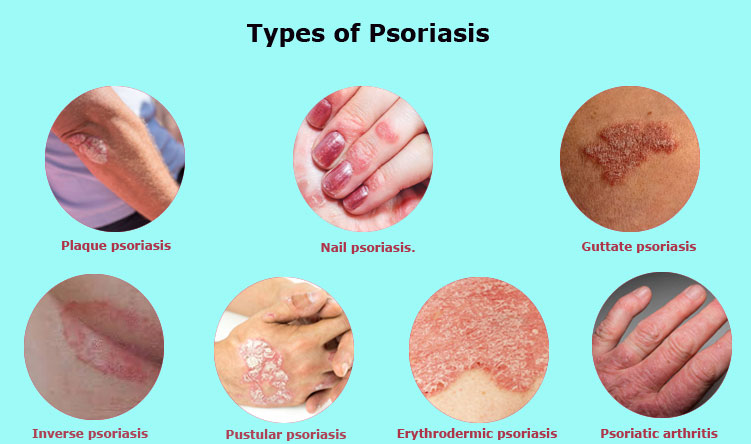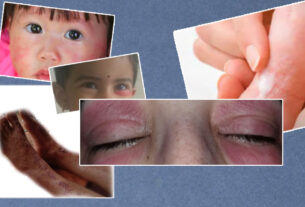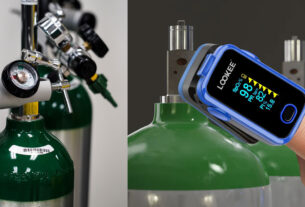 Psoriasis is a very common skin condition that causes raised, red, sometimes scaly patches on your scalp. it is usually seen as one patch or many, and sometimes it spread to the rest of the scalp. This condition occurs because of the buildup of skin cells, causing the sebaceous glands (sweat glands) to produce excessive oils.
Psoriasis is a very common skin condition that causes raised, red, sometimes scaly patches on your scalp. it is usually seen as one patch or many, and sometimes it spread to the rest of the scalp. This condition occurs because of the buildup of skin cells, causing the sebaceous glands (sweat glands) to produce excessive oils.
Many types of psoriasis vary from one to another based on scales’ appearance and their location on the body.
Major symptoms of psoriasis
Signs and symptoms will be different from one to another. Common signs and symptoms include:
- Cherry colored lesions over the skin
- Spots like dandruff mostly in children
- Dry, cracked skin causes itching or bleeding sometimes
- Itching, burning sensation over the patches
- Pitting of nails
- Abnormal nail growth
- Inflammation and stiffness of joints
Patches can vary from a dandruff-like scaling of a few spots to major lesions that cover large areas. This is most commonly visible on the lower back, elbows, knees, legs, soles of the feet, scalp, face, and palms.
Most types of psoriasis occur as cycles, firstly flaring for a few days or weeks, then subsiding for a time, and the cycle repeats
Types of psoriasis

- Plaque psoriasis. This is the most common form, which causes dry, raised, red skin lesions covered with glittering scales. This plaque might cause itchy or tenderness over the skin. They are usually seen on the elbows, knees, lower back, and scalp.
- Nail psoriasis. Psoriasis affects fingernails and toenails, resulting in pitting, unhealthy nails, or abnormal nail growth and discoloration. Psoriatic nails may sometimes loosen and separate from the nail bed. Extreme cases may result in the nail crumbling.
- Guttate psoriasis. This form of psoriasis is usually seen in young adults and children. It is mostly triggered by a bacterial infection e.g., strep throat. It appears as small, drop-shaped, scaling lesions over the trunk, arms, or legs.
- Erythrodermic psoriasis. The least common type, which may cover your entire body with red rashes, and may feel burning sensation and itching over the area.
- Psoriatic arthritis. This is a typical form of arthritis that may lead to swollen, painful joints. Sometimes pain in the joints is the first symptom or sign of this type of psoriasis. And at certain times only nail changes are visible. It can result in stiffness and progressive joint damage and permanent joint damage in the most severe cases.
- Inverse psoriasis. This form of psoriasis is mainly seen on skin folds of the groin, buttocks, and breasts. Inverse psoriasis causes red smooth patches that may have a high risk of worsening with friction and sweating. Fungal infections are the most common trigger for a type of psoriasis.
- Pustular psoriasis. This is a rare form, that results in pus-filled clearly defined lesions mostly affected on the palms of the hands or soles of the feet.
Tips to prevent psoriasis flare-up
Apply moisturizing lotions on the skin
Dryness of skin leads to conditions of the skin become worsen, so maintain your skin moist with creams and lotions. Thick and oily gels or creams, like petroleum jelly, are one of the best. Those are better on maintain moisture beneath the skin. Apply moisturizing cream on the top of the lesions, then cover the area to remove scales on the skin. Leave it on for a few hours, then remove the cream.
Provide care to your skin and scalp
Love your skin. Do not scratch patches or scales, it may lead become your psoriasis worse. Be careful when trimming your nails. If you cut yourself, it might make symptoms severe. If you have psoriasis on your scalp, rub your scalp with topical items — such as tar shampoos — into your scalp. Soothing products like tar solutions aid you to get relief with regular bathing.There
Try to avoid dry, cold weather
Climate can create a great effect on psoriasis. For some people, cold, dry weather results in symptoms become worse. Hot weather usually ends better on the skin but not always.
Use a humidifier to maintain your skin moistly
It is highly significant to maintain your skin moistly. Turn on the humidifier when the air inside the place where we stay is dry.
Keep away the medications that cause a flare-ups
Consult your doctor and enquire about the medications that cause your psoriasis to worsen. Ask what all could affect your psoriasis.
Do proper exercise, Eat Properly, and maintain a healthy weight
Although no researches have shown a link between diet and psoriasis, experts recommend that affected people should eat a well-balanced diet that’s high in fruits and vegetables. Some people say their symptoms may reduce when they remove dairy or gluten. Exercise may also help.
Topical treatment of psoriasis
Treatments for psoriasis such as ointments are applied directly into the affected area to get local relief without the large side effects of medicines taken by mouth or injections. Topical application for psoriasis are:
- Salicylic acid: Salicylic acid ointment promotes the shedding of lesions and thereby smoothes the skin. Applying a large quantity of salicylic acid ointments over large portions of the skin, may lead to absorption of too much medication and causes side effects. Long-term use of Salicylic acid may increase the risk of hair loss and irritation over the skin.
- Steroid-based creams: It is one of the main treatment regimens for psoriasis. These steroid creams help to reduce inflammatory reactions, reduce itching, and prevent the growth and development of cells that are overdeveloped in psoriasis. Unlike salicylic acid ointment, stronger preparations are more useful. It has side effects such as a burning sensation over the skin, skin irritation and dryness, and thinning of the skin. Keep in mind to follow your doctor’s order while applying
- Calcitriol and Calcipotriene: These are the effective topical treatments for treating psoriasis. It has better results when combined with topical corticosteroids. You should use only a small quantity to reduce the maximum side effects.
- Coal-tar ointments and shampoos: This type of topical application will aid to slow down the growth of skin cells and alleviate symptoms, but a small number of people are sensitive to this and cause symptoms such as, such as a pimple-like rash affecting the hair follicles. You should consult a doctor before application.
- Prescription retinoids: It is an artificial form of vitamin A that can aid to reduce the symptoms of psoriasis. These preparation have slower results as compared with steroids. There are few risks of dryness and skin irritation on regular use of topical retinoids.




